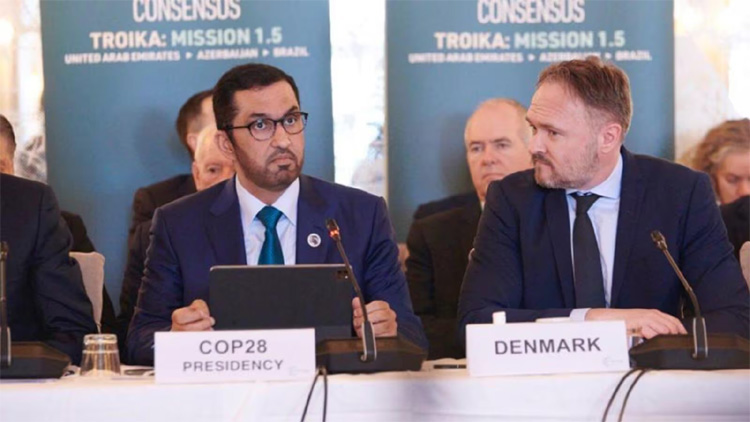COP Troika urges parties to submit climate plans for 1.5 degree celsius goal
The COP Presidencies Troika (UAE, Azerbaijan and Brazil) have invited early movers to submit improved, ambitious nationally determined contributions (NDCs) that are in keeping with the Paris Agreement’s 1.5 degree C goal to announce their intent at the United Nations General Assembly in September.
The COP Presidencies of the 2023, 2024, and 2025 UN Climate Change Conferences had formed the COP Presidencies Troika in March and launched the ‘Roadmap to Mission 1.5°C’ to “significantly enhance international cooperation… and implementation over this critical decade and keeping 1.5°C within reach.”
Now the Troika is calling on parties to submit updated NDCs which are supposed to be submitted between November and February 2025.
“To this end, the Roadmap to Mission 1.5 COP Presidencies Troika is inviting early movers who will submit next generation NDCs, informed by the outcome of the Global Stocktake, between COP29 and February 2025, to demonstrate their leadership at UNGA. This will be an important opportunity for leaders to signal their commitment to keep 1.5 within reach. The UAE, Azerbaijan, and Brazil, in our national capacities, will be among those countries who will provide corresponding signals at UNGA,” a letter sent to all 196 parties on Tuesday said.
With only six years remaining until 2030, the urgency of the climate crisis demands accelerated action across all pillars of the Paris Agreement. “Our shared success requires tangible progress on mitigation, adaptation, and the means of implementation and support, along with scaling up financial flows to support just and equitable transitions towards low greenhouse gas emissions and climate-resilient development,” the letter added.
The Troika also said the course correction to keep 1.5°C within reach in a nationally determined manner and build global resilience requires transforming the world’s current development model encompassing different pathways and approaches. This transformation must respond to the latest science and be guided by equity, ensuring climate ambition can also drive social inclusion and economic prosperity and a just and equitable transition for all, in the context of sustainable development and of efforts to eradicate poverty.
Discussions at the recent session of the UNFCCC Subsidiary Bodies (SB60) in June emphasised the priority all Parties give to the next generation of NDCs informed by the GST outcome and the need for them to mark a step change on implementation.
At the current levels of emissions, the world is way off the mark from the Paris Agreement goals, and, according to the United Nations Environment Programme, headed for 2.7°C warming.
In June ahead of the Bonn climate meeting, UN Secretary General Antonio Guterres flagged several issues and said parties are backtracking on climate action. “I see a lack of ambition. A lack of trust. A lack of support. A lack of cooperation. And an abundance of problems around clarity and credibility. The climate agenda is being undermined. At a time when we should be accelerating action, there is backtracking. At a time when we should be filling gaps, those gaps are growing. Meanwhile, the human rights of climate activists are being trampled. The most vulnerable are suffering the most,” he had said.
In its first letter to all member countries of the UN Climate Convention on July 17, the COP29 Presidency headed by Mukhtar Babayev, called on members to enhance their climate plans to make them 1.5 degree C compliant and put in place finance to achieve those plans.
“The COP29 Presidency’s top negotiating priority is agreeing a fair and ambitious New Collective Quantified Goal on climate finance (NCQG) adequate to the urgency and scale of the problem, taking into account the needs and priorities of developing country Parties. Our efforts should include the full scope and potential of the resources that need to be made available,” the letter stated.
“Growing geopolitical tensions and uncertainty in the international environment must not distract us from the imperative to collaborate and address climate change as the greatest transnational challenge of the century,” it added.


Comments are closed.